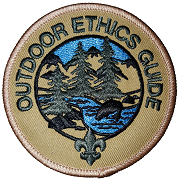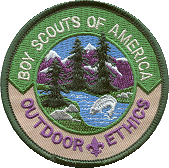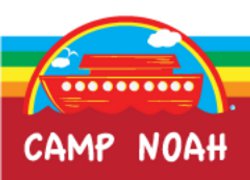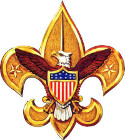Scoutmaster Musings
Archives:
2025 2023 2022 2021 2020 2019 2018 2017
2016 - Dec Nov Oct Sep Aug Jul Jun Mar Feb
2015 2014 2013 2012 2011 2010 2009 2008 2007 2006 2005


Outdoor Code + Leave No Trace + Tread Lightly + Land Ethic = Outdoor Ethics
Just like that little equation might be confusing, there's been some confusion about the Outdoor Ethics part of the Boy Scouts of America program.
I've heard BSA is breaking ties with Leave No Trace.
I've heard BSA is moving to Tread Lightly! instead of Leave No Trace.
I've heard BSA is creating it's own program.
Those are all incorrect.
The concept of being good stewards of the outdoors is not new to the BSA. Tag lines, catch phrases, logos, promotions, and even best practices come and go, but the underlying desire to use, protect, and conserve outdoor recreational areas remains. The BSA program tries to incorporate the best available study results, partnerships, guidelines, and principles to ensure its members minimize impact while maximizing benefit when participating in outdoor activities.
The BSA's Outdoor Ethics encompasses the principles of Tread Lightly! for motorized activities, Leave No Trace for non-motorized activities, Aldo Leopold's Land Ethic, and the BSA's Outdoor Code for continuity - all mantras being very similar and overlapping in many ways.
Outdoor Code
As an American, I will do my best to be:
- Clean in my outdoor manners -
We will clean up after ourselves using pack it in, pack it out techniques. We avoid leaving graffiti, fire rings, camp gadgets, and other signs of our presence. - Careful with fire -
Fire is an important tool, but one that can be devastating if it gets out of hand. We think about the need for fire, how best to use it, and how to minimize its impacts. - Considerate in the outdoors -
We will think about others as well as ourselves and how our presence impacts them. We think about not just our impact on other humans, but also on wildlife and the environment. - Conservation minded -
We will think about our impacts on the environment. We take steps to correct and redress damage to the environment.
Leave No Trace Principles
- Plan Ahead and Prepare
- Use Durable Surfaces
- Dispose of Waste Properly
- Leave What You Find
- Minimize Campfire Impact
- Respect Wildlife
- Courtesy to Others
Tread Lightly! Principles
- Travel Responsibly on land by staying on designated roads, trails and areas. Go over, not around, obstacles to avoid widening the trails. Cross streams only at designated fords. When possible, avoid wet, muddy trails. On water, stay on designated waterways and launch your watercraft in designated areas.
- Respect the Rights of Others including private property owners, all recreational trail users, campers and others so they can enjoy their recreational activities undisturbed. Leave gates as you found them. Yield right of way to those passing you or going uphill. On water, respect anglers, swimmers, skiers, boaters, divers and those on or near shore.
- Educate Yourself prior to your trip by obtaining travel maps and regulations from public agencies. Plan for your trip, take recreation skills classes and know how to operate your equipment safely.
- Avoid Sensitive Areas on land such as meadows, lakeshores, wetlands and streams. Stay on designated routes. This protects wildlife habitats and sensitive soils from damage. Don't disturb historical, archeological or paleontological sites. On water, avoid operating your watercraft in shallow waters or near shorelines at high speeds.
- Do Your Part by modeling appropriate behavior, leaving the area better than you found it, properly disposing of waste, minimizing the use of fire, avoiding the spread of invasive species and repairing degraded areas.
Land Ethic
The Land Ethic reflects Scouting's historic commitment to conservation and service. It challenges us to include "the land" (soil, water, plants, animals, air, all of nature) as part of our community to love and respect, rather than to conquer and subdue. Ethics direct individuals to cooperate with each other for the mutual benefit of all. The premise of the Land Ethic is that we must include nature in our view of mutual benefit or else we will only see it as a resource to exploit, consume, and discard.
New 2016 Boy Scout Requirements
Each of the first four ranks includes a piece of the Outdoor Ethics picture. These expand on previous requirements and require a more broad understanding of our outdoor ethic. If your troop just follows the principles as "the way we camp", then new scouts will pick up the skills quickly. They may not even realize that they are doing things a certain way in order to minimize their impact - and that would be very cool.
- Scout 1e Repeat from memory the Outdoor Code. In your own words, explain what the Outdoor Code means to you.
- Tenderfoot 1c: Tell how you practiced the Outdoor Code on a campout or outing.
- Second Class 1b:Explain the principles of Leave No Trace and tell how you practiced them on a campout or outing. This outing must be different from the one used for Tenderfoot requirement 1c.
- First Class 1b:Explain each of the principles of Tread Lightly! and tell how you practiced them on a campout or outing. This outing must be different from the ones used for Tenderfoot requirement 1c and Second Class requirement 1b.
Outdoor Ethics Guide
The Leave No Trace Traininer position of responsibility is no more. Instead, we now have the Outdoor Ethics Guide position.
The outdoor ethics guide helps the troop plan and conduct an outdoor program that emphasizes effectively practicing the principles of outdoor ethics. He works to help Scouts improve their outdoor ethics decision-making skills to minimize impacts as they participate in outdoor activities. The guide supports Scouts who are working to complete the relevant requirements for the Tenderfoot, Second Class and First Class ranks.
While the LNT Trainer position required a scout to be at least 14 years old and attend a 16-hour training class, the OE Guide has no training requirement. A scout is appointed to this position by the Senior Patrol Leader, just like other positions of responsibility. But, fulfilling the duties of this position require broad knowledge and developed skills in proper outdoor practices. It makes good sense to have a seasoned scout take on this job to provide adequate leadership to inexperienced scouts so they learn good outdoor ethics - which is much easier than UNlearning bad habits.

 Outdoor Ethics Awards
Outdoor Ethics Awards
Two awards are available for scouts and Scouters:
- Outdoor Ethics Awareness Award for Cub Scouts or Boy Scouts - an easy recognition to earn by doing a couple online activities and one real world activity.
- Outdoor Ethics Action Award for Cub Scouts or Boy Scouts - expands on the awareness award by implementing the knowledge and sharing with others.
Resources
Here are some web pages with more information about BSA's Outdoor Ethics:
Leave No Trace has been incorporated into the Scout Handbook, program materials, and training for quite a few years now. This latest emphasis in both the Cub Scout and Boy Scout programs shows that the BSA organization understands the need. As a Leave No Trace Master Educator, I'm excited to see the expanded scope. It's now up to the Scoutmasters, Cubmasters, Den Leaders, and other adult volunteers to ensure this education is made part of your unit's program. If you do this, in just a couple years scouts will just think of it as "that's the way we've always done it", and they will be taking care of showing the right way to the new scouts.
If this whole Outdoor Ethics concept is new to you, there are people that can help you grasp it:
- Council Outdoor Ethics Advocate - a council-level volunteer responsible for spreading the word.
- District Outdoor Ethics Advocate - someone in your district to help units develop their OE skills.
- Trainers - Both Leave No Trace and Tread Lightly! have train-the-trainer programs by which they are building armies of trainers that would love to present workshops to your unit, camp, or district.
| See 2 comments | Leave Comment |


Just call me Noah.
My wife, eagle scout son, and I volunteered for a week at Camp Noah in 2014 and my wife and I will be doing it again this summer.
What's Camp Noah?
Camp Noah is a locally hosted day camp for elementary-age children whose communities have been impacted by disaster. Camp Noah provides a safe, caring and fun environment where children build resiliency skills by processing their disaster experience through creative activities and play. Children are encouraged to face their fears, grieve their losses, identify and share their unique gifts and talents, and plan for an amazing future.


Where's Camp Noah?
Camps have been held in 28 states and Puerto Rico. In 2014, we volunteered in Norman, OK after a tornado. This year, we are going to San Marcos, TX because the town was hit hard by severe floods last year.
Whether flood, fire, earthquake, hurricane, or other disaster, Camp Noah is a resource for the community.
What About Scouts?
A goal of Camp Noah is to help children be resilient and prepared for challenges that will inevitably come along. Scouting has similar goals. Scouts also are all about helping people. There are quite a few ways that scouts can be involved in Camp Noah:
- Make Blankets - Every child at camp receives his/her very own fleece blanket to take home. This means hundreds of hand-made blankets are needed - no sewing required! This could be a unique Eagle Scout Project that provides a great service, takes leadership and coordination, and is based on simple skills that any scout could contribute. You could also make Kids Kits and Birthday Cards for the campers. See Projects.
- Volunteer to be on Camp Noah staff. This is what we're doing. It's a great opportunity to support children, learn about a community, and have a lot of fun.
- Host a Camp - If your community has recently been impacted, look into setting up a camp. This could be a great service for a scouting unit to undertake or help with.
When I volunteered, I got to play the role of Noah in a skit each day. That was hard for me, but I expect I'll be asked to do it again - and I'm looking forward to it this time!
Contact the Camp Noah folks to get more info about getting involved.
Unicorn song
Scout On
| Leave Comment |
Comments:
Feb 25, 2023 - Joe Patterson
Mar 16, 2023 - Adam John
Jan 21, 2024 - Johnna Downing
Scouting 2025 - Ask a Question - Add Content
Just for Fun: Socializing merit badge




Find more Scouting Resources at www.BoyScoutTrail.com



Follow Me, Scouts
Recent Comments